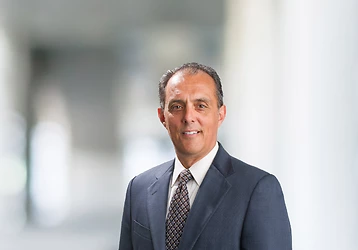District of Columbia Ban on Non-Competes Delayed Until October 2022
On January 11, 2021, Washington, D.C. Mayor Muriel Bowser signed the expansive Ban on Non-Compete Agreements Amendment Act of 2020 (the “Act”).[1] More than a year later, however, enforcement of the Act has still not begun, having been delayed twice by the D.C. Council.
BACKGROUND
Generally viewed to be one of the most comprehensive bans on employee non-competes to date, the Act created a forward-looking prohibition barring any employer operating in the District of Columbia from “request[ing] or requir[ing] any employee working in the District of Columbia to agree to a non-compete policy or agreement.”[2]
Beyond the foregoing, the Act is notable for several reasons.
First, the Act contains an expansive definition of the term “non-compete” that covers any provision that “prohibits the employee from being simultaneously or subsequently employed by another person, performing work or providing services for pay for another person, or operating the employee’s own business.”[3] In this way, the Act could arguably reach anti-moonlighting policies common to employment agreements and policies.
Second, the Act contains several notice provisions requiring employers to inform new employees of the Act’s ban on non-competes.
Third, the Act strictly prohibits employers from retaliating against employees who refuse to sign, or otherwise comply with, a prohibited non-compete policy or agreement. An employer’s failure to abide by the Act’s requirements may lead to civil and administrative penalties, including but not limited to statutory penalties of $350-$3,000.
REPEATED DELAYS
The Act was set to become enforceable on October 1, 2021, but was delayed until April 1, 2022 following an amendment styled the Non-Compete Conflict of Interest Clarification Amendment Act of 2021.[4] In pertinent part, that amendment would have permitted “bona fide conflict of interest provisions” defined as an “otherwise lawful written provision or workplace policy that bars an employee from accepting money or a thing of value from a person during the employee’s employment with the employer because the employer reasonably believes the employee’s acceptance of money or a thing of value from the person will cause the employer to: (a) conduct its business in an unethical manner; or (b) violate applicable local, state, or federal laws or rules.”[5]
In light of a request by the D.C. Council’s Committee on Labor and Workforce Development to provide additional time to consider the proposed amendment, and to work with business leaders regarding the amendment, the Ban on Non-Compete Agreements Applicability Emergency Declaration Resolution of 2022 was signed by Mayor Bowser, delaying enforcement again until October 1, 2022.
OTHER ATTEMPTED BANS AND TAKEAWAYS
As discussed in numerous Butzel Client Alerts, there has been a recent uptick in state and federal efforts to substantially limit, or even ban, non-compete agreements. With limited exceptions, these efforts have been met with resistance from the business community, as well as the legal practitioners that represent those businesses. Indeed, in March 2020, Butzel signed a letter in which over twenty law firms from across the United States urged the Federal Trade Commission (FTC) that the federal government should leave the creation and enforcement of non-compete law to the states.
If anything, the DC Act, and the subsequent delays surrounding its enforcement, show that expansive statutory prohibitions of non-competes are rarely met with open arms by all constituencies, and that businesses must continue to stay abreast of proposed and pending legislation surrounding this area. Butzel Long and its Non-Compete/Trade Secret team continues to track and analyze legislation regarding non-compete agreements and other restrictive covenants, and continues to advise businesses on how to navigate the ever-changing legal landscape here.
William Kraus
734.213.3434
krausw@butzel.com
[1] D.C. Law 23-209; D.C. Official Code § 32-581.01 et seq.
[2] Id. at § 102(e)(2). Notably, certain employers (e.g., the federal government or District of Columbia) and certain categories of employees were exempted from the Act. Id. at § 101(3).
[3] Id. at § 101(5).
[4] D.C. Bill 24-256.
[5] Id.
















